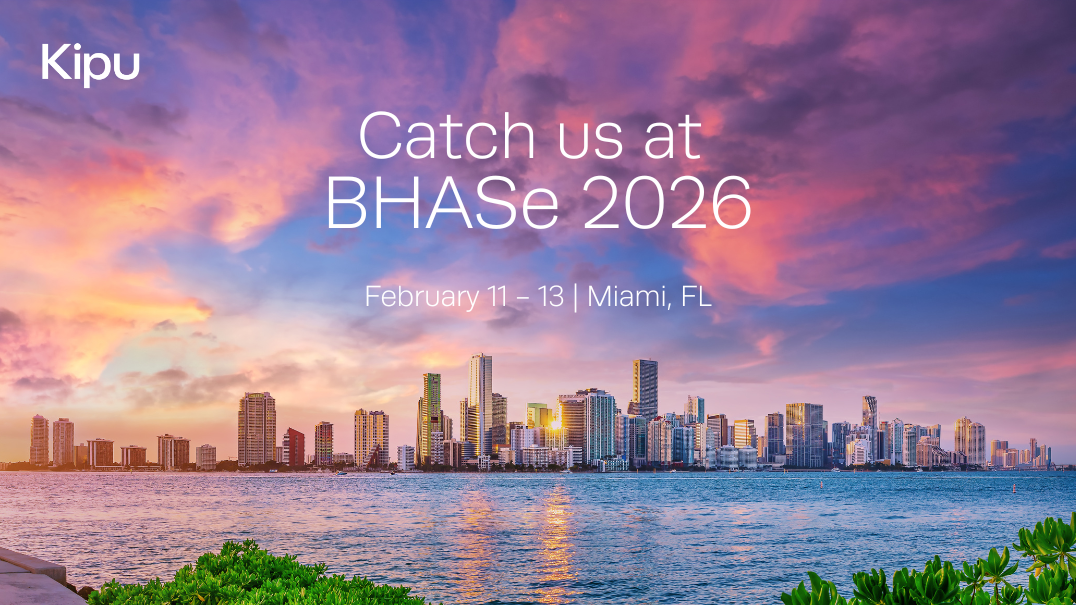National Recovery Month: Breaking Barriers, Building Connections

Each September, National Recovery Month reminds us of a simple truth: recovery is real. Millions of people across the United States are proof that with the right support, treatment, and community, healing is possible. But for every success story, there are still countless individuals and families struggling to find care, to stay connected, and to overcome the barriers that make recovery harder than it should be.
This month is more than a time to celebrate progress, it’s also a call to action. It challenges us to ask: How can we, as leaders, providers, and partners, make recovery more accessible, more sustainable, and more human?
At Kipu, we see technology as one of the most powerful answers to that question.
Recovery is About Connection
The 2025 SAMHSA theme for Recovery Month—“Recovery is REAL: Restoring Every Aspect of Life”—echoes Kipu’s view that recovery isn’t just about clinical treatment. It’s about restoring health, home, purpose, and community. For providers like you, that means every interaction matters.
But anyone working in behavioral health knows the obstacles: staff shortages, heavy administrative demands, complex billing, and the emotional toll of working in this field. When providers are stretched thin, patients feel it too—in longer waits, shorter visits, and fewer moments of true connection.
Technology, when done right, doesn’t replace the human connection at the center of recovery. It protects and strengthens it. It creates the space for clinicians, case managers, and front office staff to spend less time on screens and more time with patients. That’s where lives are changed.
Removing Barriers with Technology
Our latest Behavioral Health Outlook Report found that more than 70% of leaders believe technology is essential to addressing the addiction crisis. Why? Because it has the unique ability to remove barriers that stand between a patient and their path to recovery:
- Streamlining admissions and benefits verification means treatment can start without delay.
- AI-powered insights are helping providers personalize care, identify risks sooner, and anticipate patient needs in ways that simply weren’t possible before.
- Integrated clinical tools ensure that every participant aiding recovery has the same complete picture of a patient’s journey.
- Revenue cycle automation reduces denials and keeps facilities financially healthy, so they can focus on patient care.
Tech that enables these benefits isn’t about creating operational wins. Rather, these are the kind of shifts that ripple directly into patient care and transform recovery outcomes. Every hour saved in administrative tasks is an hour that can be spent listening, supporting, and guiding someone in recovery. For a patient, that might mean getting a bed today instead of waiting weeks. For a counselor, it could mean having the time to ask the extra question that sparks a breakthrough.
Why AI Matters in Recovery
Artificial intelligence is reshaping behavioral health in real time, and recovery care is one of the areas with the most promise. AI can’t (and shouldn’t) replace the human touch. But it can amplify it.
Think about:
- A clinician flagged when a patient shows subtle signs of disengagement, giving them the chance to step in before relapse.
- A family empowered with better insights into a loved one’s progress.
- A billing team able to reduce denials and keep services accessible without the stress of chasing claims.
These changes are already happening today in organizations who are using AI responsibly, ethically, and with guardrails in place. At Kipu, we’ve made it our mission to ensure AI is developed with transparency and care, always in service of patients and the providers who support them.
Recovery Requires All of Us
The reality is, no single provider or technology company will solve the challenges of addiction and behavioral health alone. But together, all of us—clinicians, payers, policymakers, families, and technology partners—can accelerate recovery for millions more people.
National Recovery Month is our reminder: behind every statistic is a person, a family, a story. Each barrier removed, each connection strengthened, brings recovery within reach for someone who might otherwise have been left behind.
A Call to Action
As leaders in this field, we have both an opportunity and an obligation to act: To invest in systems that empower our teams, to embrace innovations like AI that make care more proactive and personal, and above all, to center every decision on the dignity, resilience, and potential of the people we serve.
Recovery is real. Let’s make it real for more people, together.
Rely on Kipu to keep you ahead of change.
Subscribe to Kipu for behavioral health news, updates, community celebration, and product announcements.




